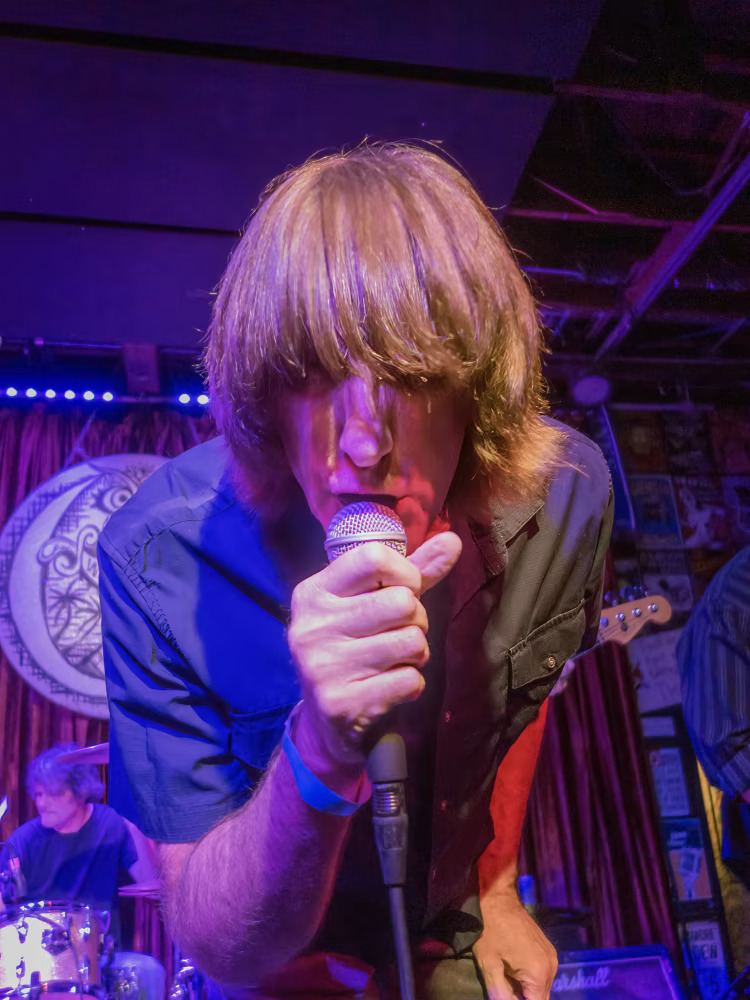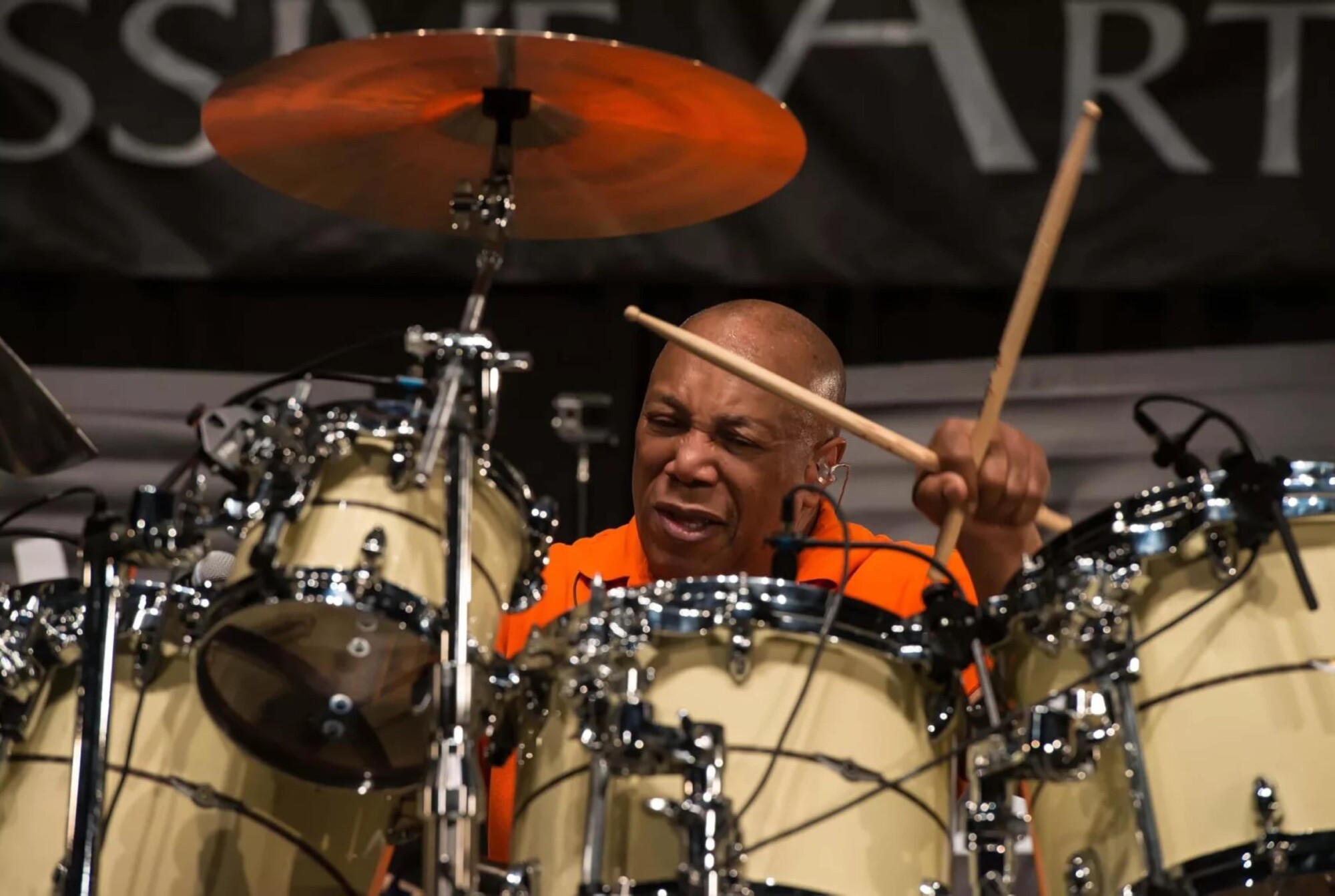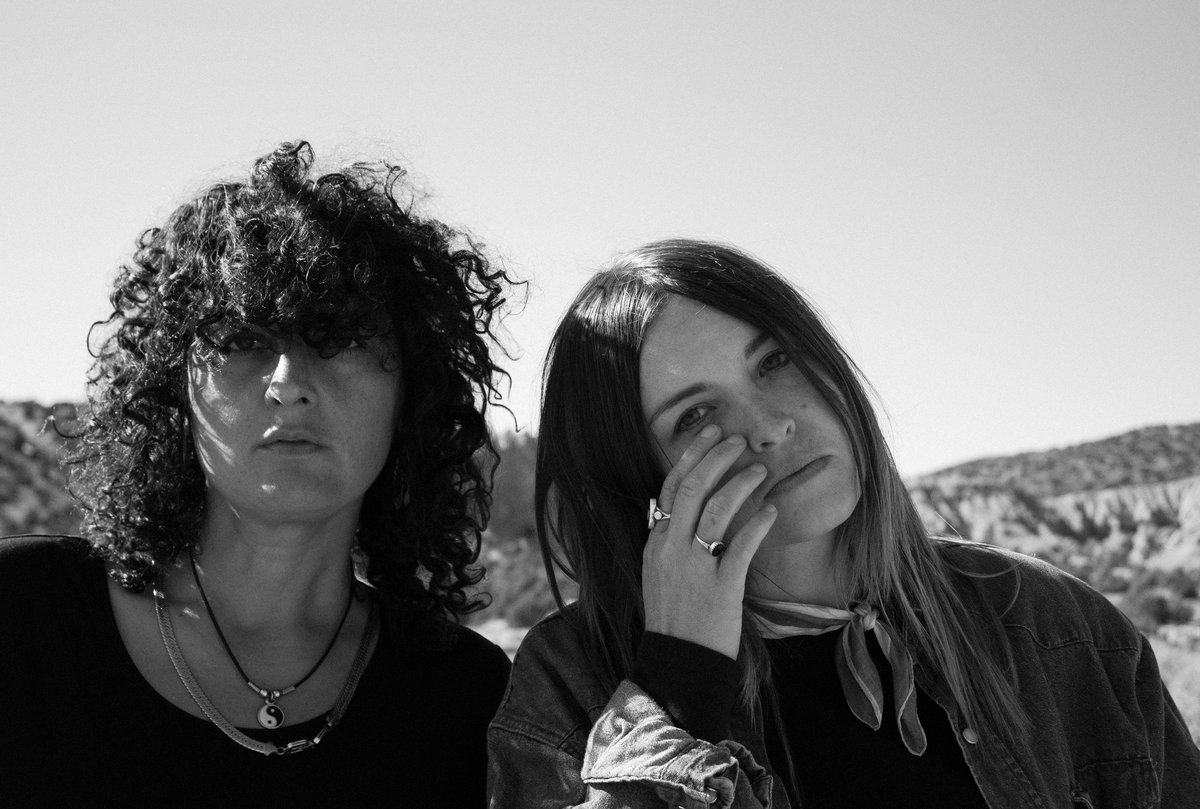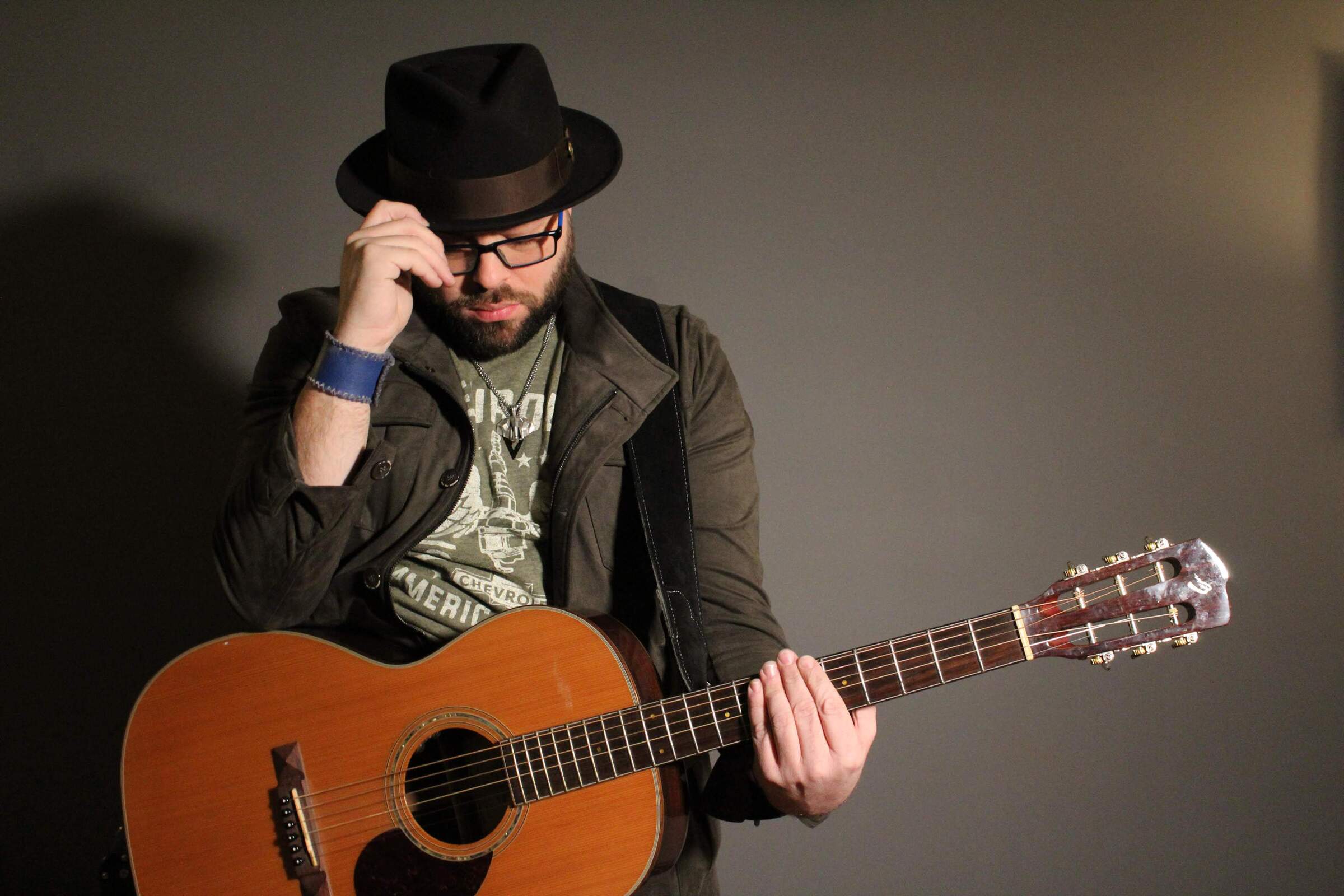The Mullens | Interview | New Album, ‘Get What You Deserve’
The Mullens return with a brand new album ‘Get What You Deserve,’ out via Get Hip Recordings.
The latest album consist of ten new garage punk rockers – a premium Texas garage rock. All songs on the new release were recorded at Cloudland Studio in Ft. Worth, TX by Joe Tacke, owner of Cloudland Studio and bassist for Ft. Worth garage rockers, Mean Moto Scooter.
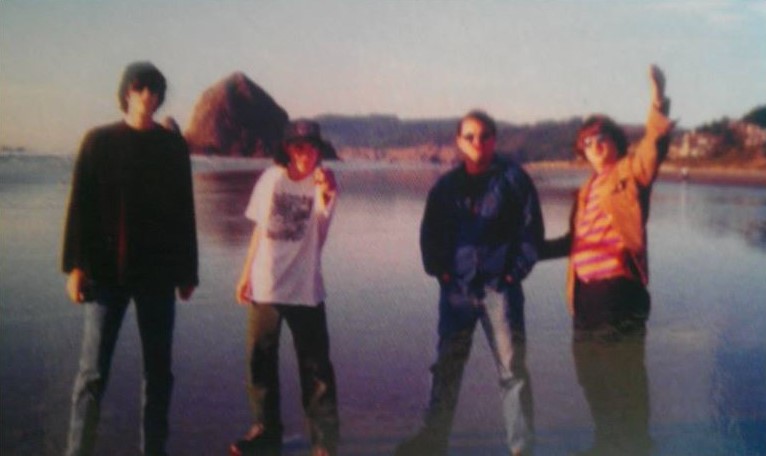
“We are blown away by the way the new tracks are sounding”
You have a brand new album out. How long did you work on it and how happy are you with the result?
Tim Stile: I think we started recording the first batch of tracks for the new album in 2020 and were done with mixing and mastering by late 2021. We think the new album sounds great. We did the recording at Cloudland in Ft. Worth with our buddy Joe Tacke, the owner of the studio and bass player in Mean Motor Scooter. Jorts Richardson did the mastering and we are very happy with his work too. We were told he had won a Grammy for a blues album, and we think he deserves another Grammy for the job he did on our album.
Tell us about those songs, are any of them old sketches you revisited or are all of them completely new?
The songs are all new, we recorded them in batches as we came up with them. ‘When I Make My Stand’ and ‘No More To Talk About’ were written in the same two day span and were probably the first two songs written for the album. I imagined the rest of the album was going to be in the same style as ‘Make My Stand,’ but inspiration just kept coming from different directions. The music structure of ‘No More To Talk About’ and that recurring riff were sort of inspired by a Lyres song (but I can’t remember which one), but the verse line, “There’s no more to talk about…,” came from a conversation with my wife the night before when I just didn’t want to talk about whatever it was we were talking about, like whether a new job I just got was going to work out, h ha. The title track ‘Get What You Deserve’ is about our cat Lucy, right after she clawed me on the nose. It just came to me one afternoon and I fleshed it out with that riff and everything in less than an hour, the best way to write. I often think of a quote from John Lennon where he said that very early on, McCartney told him, “If you’re gonna write a song, finish it.”. That’s probably easier said than done by someone like them, but it’s still a good guideline and source of inspiration when I know I have a good idea, but I’m running out of steam as they say. ‘Bad Bad Man’ was another one that came really quickly, kind of a mash of ‘Slow Down’ and ‘Outside Looking In,’ haha. ‘Heard It from Kandi’ was quickly written and I thought it could be a huge hit (covered by someone else). It was inspired by my Sister-in-law Candi. One day she was at our house for a birthday party or something, and she was the last one to leave and was walking out the door, but stood there in the doorway telling me and my wife some family gossip, and she kept almost leaving, but would remember something else. It was funny and when she left I told my wife something like “If Candi said it, it has to be true.” ‘Glad You’re Mine’ was a collaboration of mine with our guitar player Lee Lazarine. He had the chord structure and I came up with the lyrics, vocal melody and chorus. The line about “Just like to watch you shake and bake it baby” came to me when I had been working on the song and I was in the grocery store and saw a box of Shake ‘N Bake, which is a prepackaged seasoning mixture you put on chicken and then bake in the oven. I went out to the car and sang the line into my phone, then went home to work on it some more and the line “So glad, so glad you’re mine,” just came right to me. For me it’s one of the best Mullens songs ever, one of several collaborations with Lee Lazarin that turned into great songs. ‘Always On Your Side’ started with a riff that I sort of borrowed from ‘I Need You There,’ a song by 1960’s Texas garage band The Chessmen. Mean Motor Scooter keyboardist, vocalist, guitarist and all-around great musician and person Rebekah Elizabeth sang back-up vocals on the chorus. ‘Lonely Wolf’ was probably the last song written for the album. I was up late on a Saturday night by myself with acoustic guitar and came up with this really lonely sounding, cast from the world kind of vocal tone and to me the song just really sounded sad, “Tell your mama I’m lonely too…”. It didn’t come across quite that way when we recorded it, but I still really liked the results. Mike McHenry does a great job with back up vocals on that one and others on the album. Mike has really been a super positive force keeping The Mullens going these last few years. We are very lucky to have him. I had known him for years and saw him play with another band he was in called Drawer Devils, and I was in awe of how cool he looked playing and how much fun he looked like he was having. Mike’s contribution of the resonator guitar solo on ‘Bad Bad Man’ totally took me by surprise and to me it took that song to a new level.
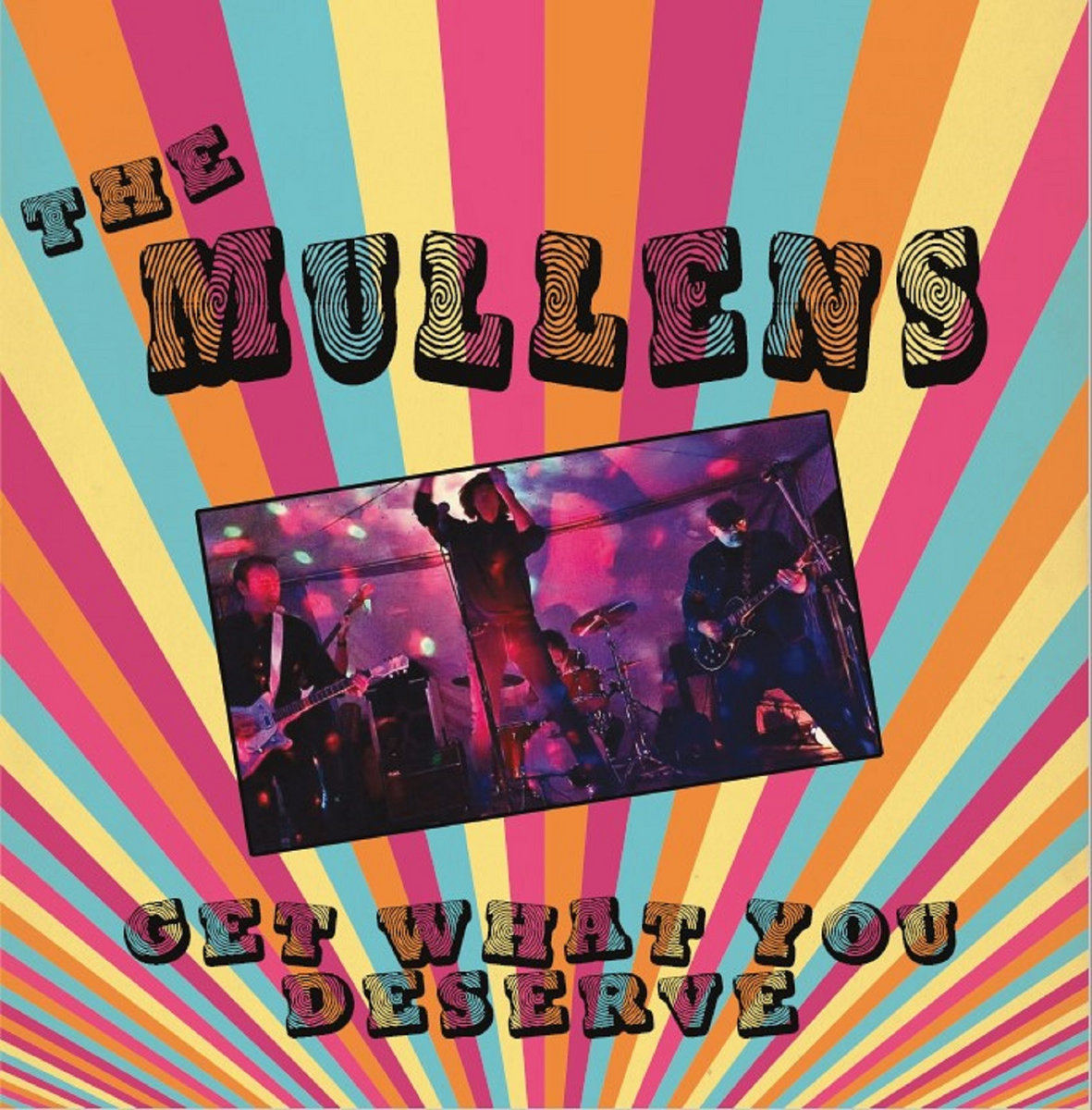
Do you often play live these days?
We play all the time, mostly Dallas, Ft. Worth, Austin, Houston occasionally, and Denton (there’s a college in Denton, the University of North Texas and it’s a blast). We’re playing three dates in Los Angeles, CA on October 13, 14, and 15, two of the dates are with the LA based garage legends The Unclaimed and The Killing Floors (if you haven’t heard either, please check them out), and we’re going to Spain in January, 2024.
Let’s go back in time when you were growing up. Tell us what it was like to grow up in Dallas?
AActually I grew up in Tulsa, Oklahoma and moved to Dallas for the music scene. Tulsa was and still is kind of a junior version of Dallas, or they think they are, haha, but they’re really quite different in size and attitude. Tulsa was an oil boom town and was known as The Oil Capital of The World. My father was a petroleum engineer and I grew up in a neighborhood of older very large homes that were built by the early oil barons of the first boom. Our house wasn’t a mansion, but we were very comfortably middle class, I guess. I would ride my bike all over the city doing whatever I wanted, without much restriction from my parents. The Sex Pistols played both Tulsa and Dallas, their gigs in both cities were in legendary Honky Tonk clubs where legends like Bob Wills and Hank Willams played. In Tulsa, it was The Cain’s Ballroom, in Dallas, it was The Longhorn Ballroom. In the days after punk rock broke, The Cains Ballroom in Tulsa hosted a lot of touring popular punk and new wave bands as well as Iggy Pop, The Cramps et cetera, so even though I would say Tulsa was a very small town in comparison to Dallas, fortunately it was on the circuit and plenty of alternative bands made stops there. Really big bands like Led Zeppelin, The Who, The Beatles didn’t play Tulsa, but they all did play Dallas multiple times. The Rolling Stones played one Tulsa show in 1965 and the story goes that they wouldn’t go out onstage until the audiences was chanting, “We want the Stones,” but they weren’t getting that from the Tulsa audience, so The Stones eventually came out and played three songs, then called the audience “farmers” and left, and never came back to Tulsa. I love that story and wish I had a time machine to go back and witness it. As far as places where local punk rock bands could play in Tulsa, venues came and went, same for Dallas and probably a lot of other cities in the US. The first punk club of note in Tulsa was The Blue Grotto, in Dallas it was probably DJ’s, in what is now called Deep Ellum, later there was The Hot Klub, Agora Ballroom. As far as finding early punk or new wave records back then, Dallas had VVV Records, which was also a record label that released local punk bands, Tulsa had independent record stores that carried albums and 45’s by bands you couldn’t find in the corporate chains like Peaches or Sound Warehouse. These stores were tiny and were adjuncts to stores called head shops that sold weed smoking paraphernalia. The most important shaping of my growing up in Tulsa was transferring from the Catholic high school where I attended my freshman year, to the Arts Magnet high school, Booker T. Washington. Booker T. had been on the north side of Tulsa in the African American neighborhood since the 1920’s and was made into an Arts Magnet school in the late 1970’s with more emphasis on art, music, tv/film production, et cetera to attract white kids from south Tulsa to be transferred/bussed to the African American neighborhood. The Catholic schools where I had been attending were awful, all they offered was sports, sports, and more sports, yuck! There was no art, no music, and photography class was only offered if you were on the yearbook committee. Booker T. was an utterly stimulating environment artistically and socially. There were lots of musicians, some played professionally in cover bands, which totally impressed me. I was in a completely new world from those repressive Catholic schools I had attended before, like they encouraged students to express themselves artistically. I was playing only a little bit of guitar and piano, but could play drums pretty well so I played drums in the 7th hour jazz band. That was a blast and it exposed me to more musicians and different musical tastes. We had a really cool band director who selected cool tunes for us to do. We’d go play these all city concerts with other schools and they were kind of like competitions. While the other schools would play themes from television shows or movies, we played Sonny Rollins and Miles Davis tunes. Our band director bragged to us that he was in a rock band in the 60’s and said their performance at the State Fair was the first time a rock band performed with a light show in Tulsa. I don’t remember the band name.
“There were always people over hanging out, listening to music, and jamming”
So did you have a certain hangout spot where you smoked weed, drank and listened to records?
The house where I grew up had an apartment over the garage and when I was about 15 years old, I moved all my stuff from my bedroom to the garage apartment and that became my bedroom and hangout spot to smoke weed, listen to records and jam with my musician friends. There were always people over hanging out, listening to music, and jamming. Friends would bring over people they had just met, with guitars and amps and we jammed all day and night. I don’t know how the neighborhood never called the police on us, but never had cops show up telling us to stop. Around this time I really became obsessed with 60’s bands. There was a family that lived behind me and their kids were all grown up and long gone, but their record collection had been left behind, so they gave them to me, then I went to another family’s home and they gave me their old records, and soon had a really great collection of 1960’s music.
What bands did you first form? Would love it if you could share some further words about bands like The Healing Faith and Hash Palace.
There were always different guys showing up at the garage apartment with guitars and amps wanting to jam, but no one was writing their own songs. I used to record our jams by various means that I had recorded and then I would try to get the guys to make songs out of bits that we recorded, but they weren’t capable of duplicating what they had played before. I had a band in high school called The Raw Meat, but we never recorded in a studio and we didn’t really have good songs either. The first band I played in that was a good band with songs was The Flying Dots. The singer/guitar player/songwriter in The Flying Dots was Ray Nicke and his original songs just blew me away. I had never known anyone personally who could write songs that I thought were good enough to be on the radio, but to me Ray’s songs were that good. His songs were short, punchy in a punk sort of way, but melodic. I still keep up with Ray and we talk frequently and I tell him he needs to get some of those Flying Dots recordings released by Get Hip or some other label.
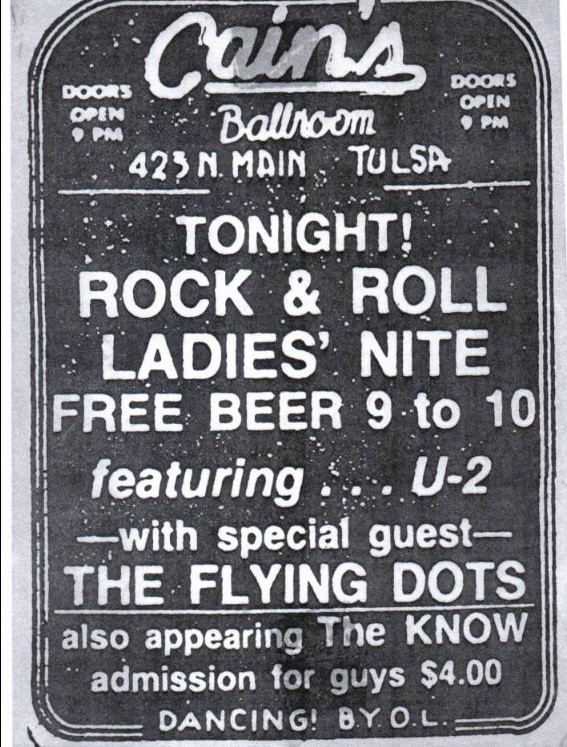
The Flying Dots morphed into a different band called Boytalk and were making more pop radio friendly songs, but then I was kicked out of the band because a friend who was acting in capacity as a wanna be producer told Ray my drumming wasn’t good enough to take them to the next level. He was probably right, I wasn’t session drummer material, but I was absolutely crushed. Not being in a band, being kicked out of the band that I thought was going to make it was devastating. I went into the bathroom of my duplex and shut the door and turned on the gas. Fortunately, due to having Attention Deficit Disorder, it was taking too long so I got bored and abandoned the action I had initiated. The word got out that I wasn’t in a band now because soon after, like the next day, Joe Danger (aka Joe Christ) from The Reactors (aka Los Reactors), asked me to play drums in a new band he was putting together called G Spot.
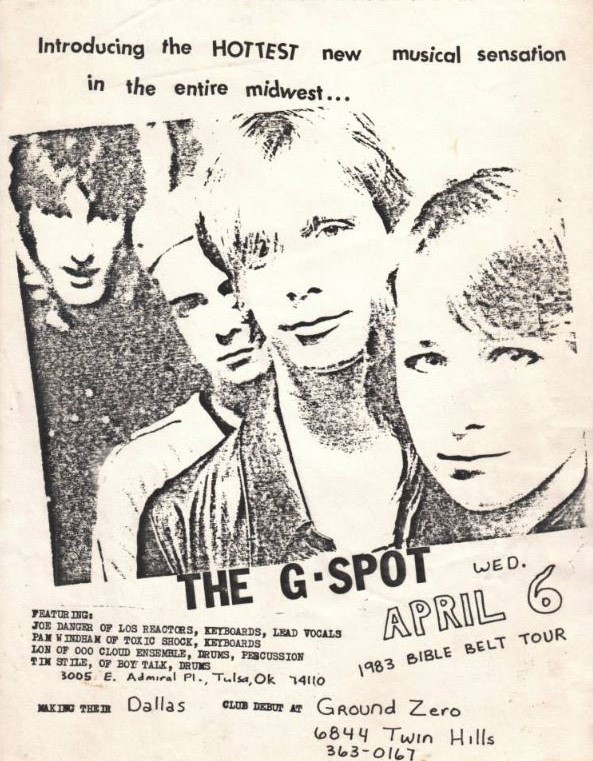
I jumped on the opportunity because Joe’s band The Reactors had been the most popular band in Tulsa when punk and new wave first hit. G Spot got popular in Tulsa pretty quickly, we played the Cains Ballroom a few times, recorded a single ‘Idle Worship’ b/w ‘Poor Little Rich Girl,’ then moved to Dallas very soon after because the Tulsa music scene was becoming almost non existent, with no clubs to play, except for this cowboy bar called The Crystal Pistol, which would only have bands on Tuesdays or Wednesdays. So we moved to Dallas, but the same thing was happening there. The scene had kind of dried up so we were always playing in weird one off places like gay bars, VFW halls (Veterans of Foreign Wars hang out lodges). G Spot kept going and we toured all over the country for about two years. We sort of disbanded and Joe and I formed a new band, The Healing Faith.
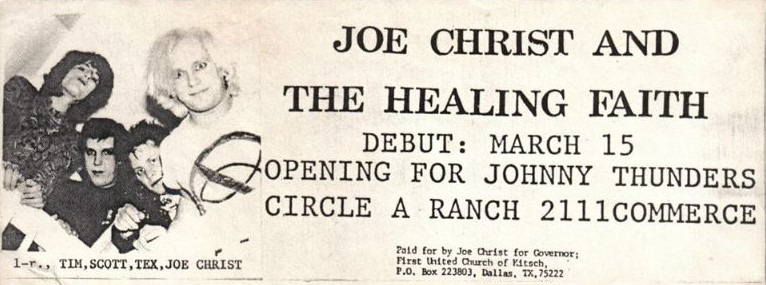
Joe was a really good songwriter, but his lyrics for the most part ventured into just wanting to be shocking or anti-religious, but he could also write a nice love song. The Healing Faith released one album, which was recorded at Summit Burnett studio in Dallas where supposedly The Rolling Stones and James Brown had recorded, and we did one single, and one small tour. For the tour, our regular bass player couldn’t make it, so we recruited Mark Schafer from The Other Side, a really great psych band from Dallas. Mark became the regular bass player and then our guitar player quit, so we put an ad in a weekly paper for a new guitar player and it was answered by a guy named Terry Ciarlino.
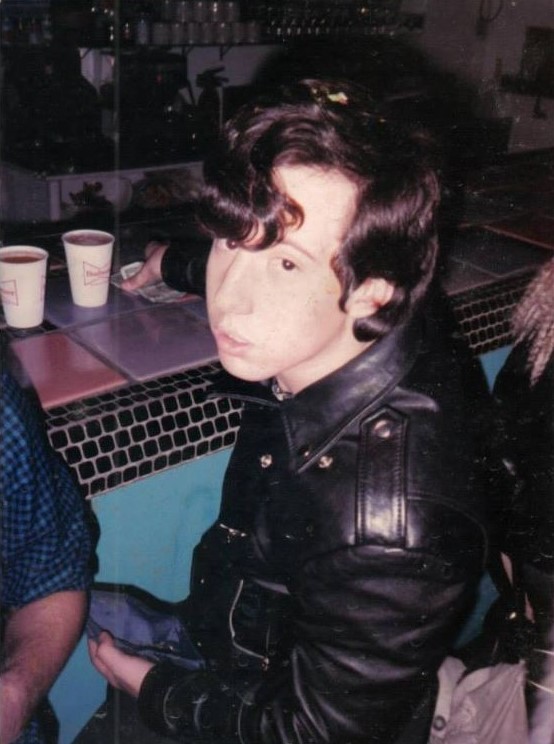
The Dallas music scene was really starting to suddenly blossom with a lot of new bands and new clubs in the downtown Dallas neighborhood of Deep Ellum. Ellum is actually a mispronunciation of Elm (also spelled Elem, as in ‘Deep Elem Blues’), which is a street that runs east from downtown. Deep Ellum was an African American neighborhood in the 1920’s and had clubs where blues artists like Blind Lemon Jefferson and Lead Belly played. Robert Johnson had made one of his only two known recordings in downtown Dallas near Deep Ellum. The new scene in Deep Ellum was very vibrant with lots of new young bands.
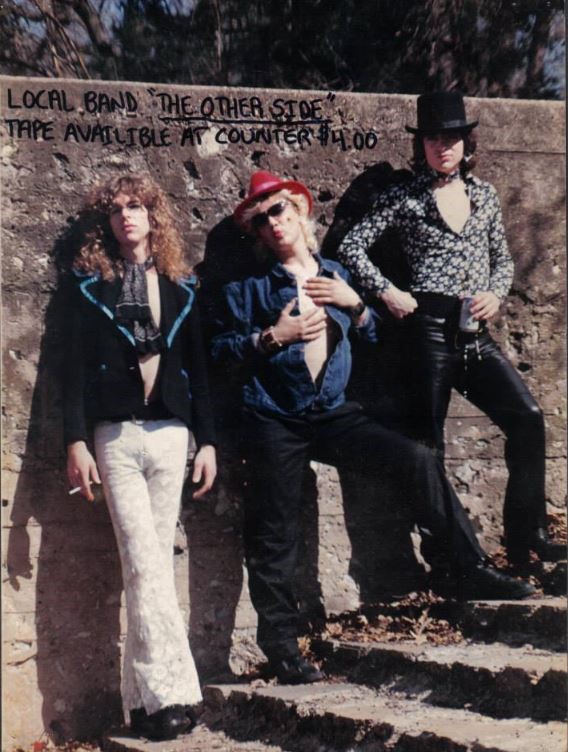
Meanwhile, The Healing Faith was centered around Joe Christ as sort of a comical shock personality and Mark and Terry and I didn’t see the Healing Faith fitting in this new Deep Ellum scene that we wanted to be a part of so the three of us decided to form a new band centered around songs by Terry Ciarlino, who was a very talented guitar player and songwriter. Terry had sort of a dark self-conscious style that was really appealing. Terry liked a lot of 1960’s garage, which I did too and I knew that a new band centered around what Terry brought was going to be successful. Our bass player Mark Schafer had been talking to a co-worker named Allan (Skippy) Wise, who had been in a band called Brenda The Cow, but he was looking for something new to do, so he joined up with us.
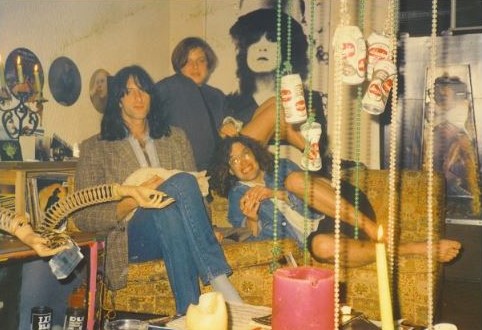
Skippy has always had a knack for coming up with funny word combinations and he came up with the name Hash Palace. We thought the name was perfect and we would fit in with the new scene of bands. Skippy had a great voice, played guitar very well and was a really good songwriter too. The band’s chemistry was now really rounded out with the four of us. Skippy kind of became the front man, mostly just handling the lead vocals live, but would play some guitar live too, he and Terry were great at playing off of each other. Skippy was a great front man and had a lot of girl fans, which helped our popularity. Our sets mostly consisted of Terry’s songs and Skippy’s songs and some covers. We did a single for local label Rockadelic Records with ‘Biting Nails’ and ‘White Trash’ and it’s a fairly good representation of our sound. ‘It’s Always Me,’ which would be on our album we would record later, was a show stopper in the early days.
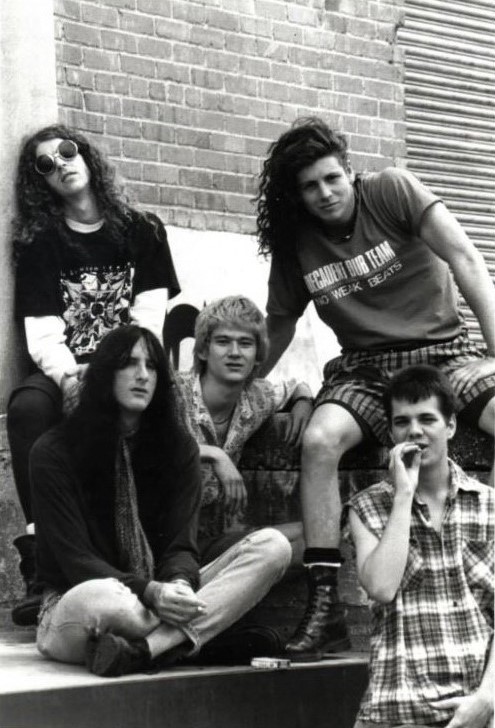
At the time of Hash Palace’s height of popularity in Dallas, we were courted by Geffen Records who sent a staff attorney named Jeff Fenster to Dallas to hang out with us and so it seemed like we were likely going to be signed to Geffen. A producer was suggested. Rick Brody, he wrote ‘Rock You Like a Hurricane’ by The Scorpions. Rick flew to Dallas and came to a gig and hung out with us at the Hash Palace house. Rick and the attorney were hyping us up and Rick told us he would “get Terry full of amphetamines” when he laid down his guitar parts. But after a while, the enthusiasm from Geffen started to wane, or that’s what the attorney told us, it kind of became clear to us the attorney just wanted to party with our women, and when he was ready to move on to another town, another young band and their young women, then that was sort of that. We were maybe kind of suspicious of what was really going on, but when you’re a young band, someone representing a major label like Geffen has a lot of power and you’re probably going to let them do what they want to do. Sadly, Skippy left the band for reasons that had nothing at all to do with the music or the band. I personally take the blame for our relationship with Skippy ending, he and Terry and I were all roommates and I nagged Skippy about typical roommate kind of stuff. I was probably unnecessarily overbearing, and I felt bad about it later, still do. We were young, we had been good friends and we had a lot of good times together. We found a new singer named Greg Towle who had a big voice and personality and front man presence and we recorded his vocals over Skippy’s vocals for a track for a compilation album on Triple X Records, then we later recorded a full album with Greg. Our popularity locally was pretty healthy again. We got some national attention after our album ‘Grit and Bare It,’ was released on Semaphore/Resonance, and were invited to play at the CMJ Festival in New York, so we scheduled a tour, but a few days before the tour, Terry just up and left and went to California to be with his girlfriend who had moved there to go to school. We miraculously got a guitar player named Sam McCall to do the tour and CMJ Festival with us. Within a few months, we had two new really good guitar players Richard Aul and Aaron Berlin and we were somewhat rejuvenated and were playing and recording new songs and still gigging a lot, but soon interests were going in different directions and we eventually called it quits.
Can you elaborate on the formation of The Mullens?
The end of Hash Palace and the beginning of The Mullens are sort of intertwined. For the last year or so of Hash Palace‘s existence, some of the band members became fans of grunge and heavy rock that was more metal than suited my taste, and in fact at the very same time they were going heavier, I was going back to punk rock and was really sure the way to go was with short, punchy, punk songs with a lot of energy. I had obtained a four track tape recording and was making demos of cover songs and writing my own songs. Shortly after Hash Palace broke up, I started working at The Galaxy Club in Deep Ellum running sound and was meeting guys in other bands I hadn’t known before, talking with some about forming a new band, but a lot of it was just late night talk. I was learning about running sound and was also buying recording equipment. I started hanging around this group of musicians who were into rockabilly and I would record them so I could work on learning to record music. I would record bands for free just for the opportunity to work on my recording skills. Then one night I was running sound at The Galaxy and Scott Prater, the guy who had hired me to work at the club asked me if I wanted to sing a set of Ramones songs for a one night only performance, and I said yes, and from the first rehearsal I knew that I wanted to form my own band and be the singer and write the songs. The guitar player in the Ramones cover band Alan Prater, (brother of Scott and also worked at the club), and I started playing together and would do these duet performances at the Galaxy in between bands. That time period working at the Galaxy was some of the most fun times I had in my life, the club was our second home, we could play whenever we wanted, do drugs in the dressing room, and after the club closed, we would hang out at the bar, and we were all kind of a family. It was not the most popular club in Deep Ellum, but it was our little slice of rock and roll heaven. One weekday night at The Galaxy club, a band from San Antonito I had never heard of called Sons of Hercules showed up to play on like a Tuesday or Wednesday and it turned out to be a huge event for me. These guys didn’t play shoe gazer or grunge like a bazillion other bands who came through The Galaxy, they played high energy 2-3 minute songs with a throwback style of garage punk that I was not aware was happening around me. The guitar player Dale Hollon and the singer Frank Puglise had a look too, like a band from 1966-1968 whose hair was a little long for the time and with bangs (Frank had been in The Vamps and they opened for The Sex Pistols in San Antonio). The Sons of Hercules were the coolest band I had ever seen in Texas. I stayed in touch with Dale Hollon and our bands would play together in San Antonio, Austin, and Dallas many times over many years. Another band from Texas who had that same impact on me around that same time was Sugar Shack, from Houston. Hash Palace had played with Sugar Shack in Houston and Dallas. Their music was kind of grungy and they had hair down to their elbows, and really great stage presence from singer Mark Lochridge and guitar player Andy Wright. One night in between sets at the Galaxy, I walked over to a new club in Deep Ellum called The Orbit Room and there was Sugar Shack playing, but they looked and sounded very different from before. Mark, who previously had the longest hair, now had a neat sort of bowl haircut and dressed kind of preppy, and their music was not grungy at all, and was more high energy garage rock. It was clear to me that something was in the water in Texas and the look and sound that I wanted for my new band was happening around me and I loved it and knew I was setting the right course. Alan and I were hanging out a lot and jamming and I was writing songs and we soon recruited bass player Dave Griggs, and Dave brought on his friend Rod Baird on drums. The chemistry between us was great right away and we were having fun. We were trying to come up with a name, and maybe in just a conversation that didn’t have anything to do with the band name search, Dave and I both mentioned that we had known families with the last name Mullen, and both families sort of had their share of run-ins with the law and tragedies that I shouldn’t go into here, but somehow while we were talking about it, we thought The Mullens would make a great band name, it wouldn’t mean anything to anyone else, just us, but still it was a name and it stuck and we played our first gig as The Mullens in April, 1994 at Club Clearview in Deep Ellum. Not having enough original songs for a set, we did covers of ‘I’m Alright’ by The Rolling Stones in the style of the version from ‘Got Live If You Want It,’ and ‘Make Believe’ by Conway Twitty. One night I was in a neighborhood convenience store getting some beer and I saw someone I recognized as this new guy from my day job named Matt Mayo.
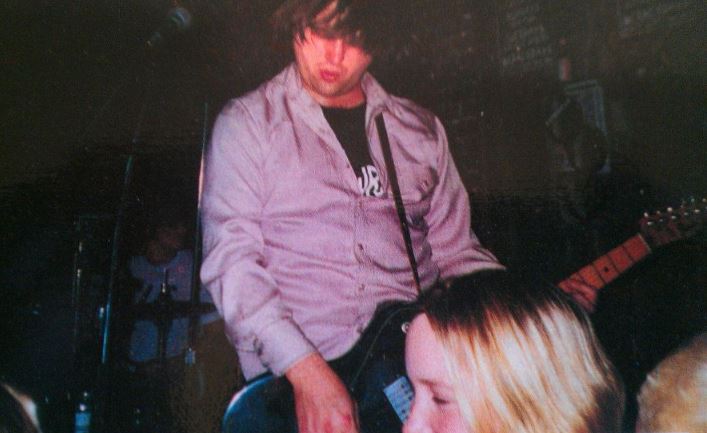
He said he lived a couple blocks from me and he plays guitar and writes songs and is in a band called Spoiler. Spoiler later had a gig at The Galaxy and I remember the way Matt kind of jumped forward when the first song kicked was really cool and I could see he had a great stage presence and kind of a bowl haircut. Not long after, Matt came over to my house with a guitar and he laid down a couple of songs on my four tracks that he had been working on, one of them was ‘This and That,’ which would later appear on The Mullens debut album. I was blown away because he really knew how to write a song and could play really well, and he had a lot of ideas. We agreed he would come to jam with The Mullens at the next rehearsal and just like that he was in. Matt and Alan were great together, very raw garage-punk sounding. We started gigging a lot in Dallas with the new lineup and would soon have enough songs for an album. Around this same time I had moved into a rented house with a couple of adjoining rooms connected by a door with a big glass window, perfect for setting up a control room sound room for recording. We all got together and insulated the room and started practicing there. I think our first gig with the new lineup with Matt was with Reverend Horton Heat at Club Clearview. Around this time, bass player Dave Griggs left the band and Dana Williams, a friend of Matt Mayo’s, became the new bass player. For recording, I had been using a four track recorder, and the board I was using to route the sound into the four track deck was a Peavey PA head, but the sound got from point A to B, so it worked for a while. Eventually I bought a used Tascam 8 track reel to reel tape deck, a brand new Soundcraft 24 channel mixing board, digital reverbs and compression racks, I traded a cymbal for an old Roland Space Echo (yeah, I’m sure it was hot), and a Digital Audio Tape (DAT) deck for mixing down to two tracks. I think the first band I recorded with the new gear was Fireworks for a track they needed for a compilation album. They were in Dallas between tours and hanging out with us a lot and I ended up recording them on several occasions. The sound of the recordings improved as I expected it should. I started recording a lot of bands, a few actually made records. My favorites were Fireworks, The Blackouts, The Reds, but most bands were just starting out and were just wanting to get something recorded. I wasn’t trying to make a second career out of recording bands, I just wanted to make better Mullens recordings.
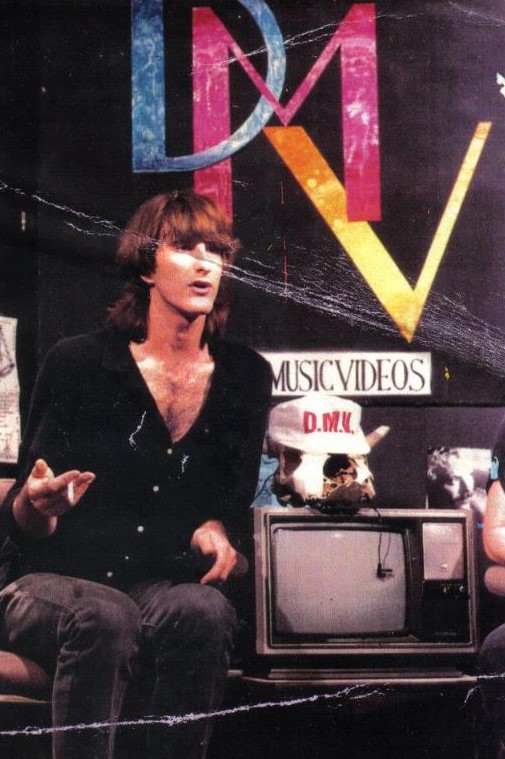
What led to your debut album, ‘The Mullens’ released in 1997. There must be a story behind that cool cover artwork?
I was always calling or writing to record labels like Estrus and In The Red, trying to get someone to put a record out for us. One of my Fireworks recordings was released by local label Direct Hit Records, and Kelly Hendren, owner of Direct Hit record store and the record label asked The Mullens to do a split 45 with another local band, Mess. The 45 had two songs on each side, ours were an early version of ‘Something For Yourself,’ which we would re-record later for our fourth album, and ‘It Won’t Stop’ with the great line, “There you go doing it again. There you go listening to your friends.” Not long after the release of the Direct Hit 45, we were contacted by Tokyo based label 1+2 Records to do a 45 for them too, so we released a three song 45 on 1+2 Records in Tokyo with an earlier version of ‘Step On The Gas,’ and two songs not released anywhere else, ‘Try It’ and ‘Girl From Vietnam’. After the release of the 1+2 Records 45, we were contacted by Gregg Kostelich at Get Hip Recordings in Pittsburgh, PA USA. Gregg told me he was distributing the 45 for 1+2 Records and asked if The Mullens wanted to do a full length album for Get Hip Recordings.
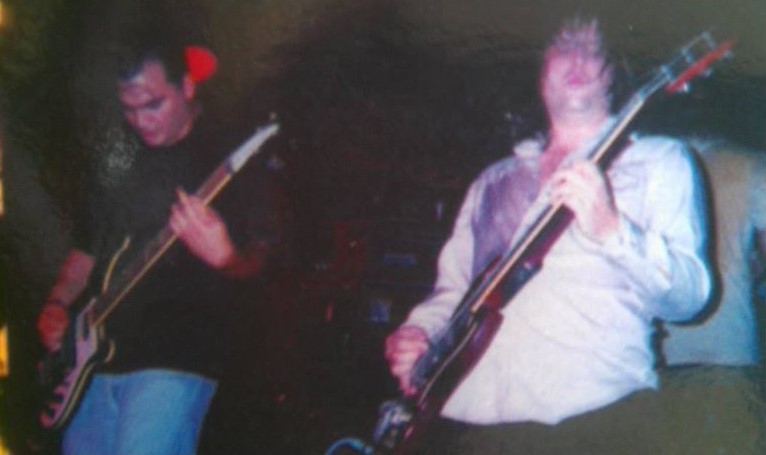
We said yes and I sent him a cassette tape of four songs that we had recorded and mixed on my new gear and Gregg replied and asked me to send him a full album with those same four songs kicking off the album in that same order. We were very excited about doing the album for Get Hip and it didn’t take long before we had sent Gregg all the songs for the album on a DAT tape. Ironically, when I was touring with Hash Palace on the way to the CMJ Festival a few years before, we were in Pittsburgh, PA and the Big Chief album was just released by Get Hip and we listened to it in the van a lot. So I cold-called Gregg and actually spoke with him on the phone and asked him to come see Hash Palace at the Decade in Pittsburgh that night. Gregg didn’t make it to the hash Palace show. I asked him if he remembered that after we did The Mullens debut, but he didn’t remember. I asked Gregg if he thought The Mullens album would be as big as Big Chief, which he thought was a funny question. Gregg and Barbara helped us set up a tour and we went all over the northeastern US and Canada.
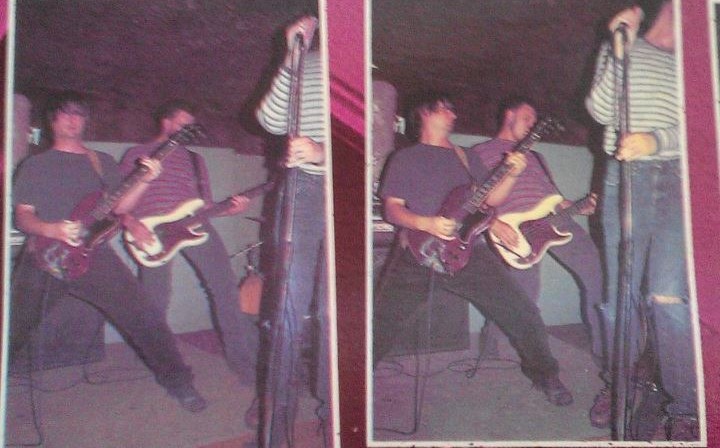
Everything we had been told about Canada was true, the people are super friendly and they had the best beer and weed. Our biggest gig, the first tour was in Montreal and was sponsored by Molsen. Alex from the Spaceshits set it up. He was a super host. Montreal is totally French and everyone speaks French and the audience who all spoke French were singing along to our songs. Our show at Coney Island High in NYC with Nashville Pussy was a highlight of the tour.
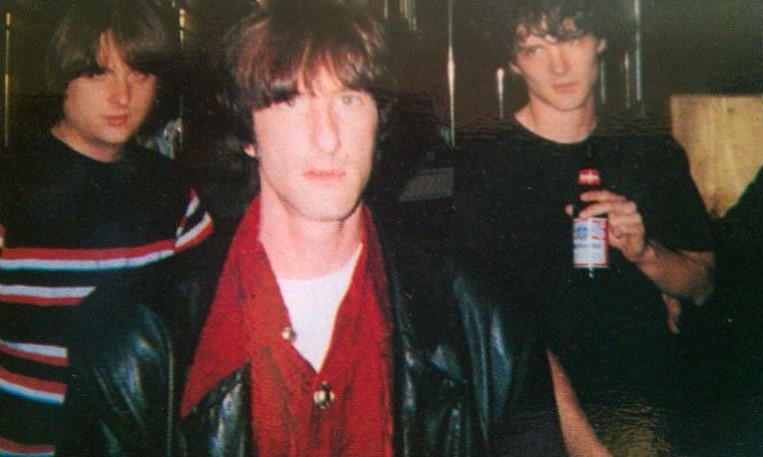
Alan Prater left the band some time before the album came out and we continued as just a four piece. ‘Step On The Gas’ is the first song on the debut album and is the only song that has been in the setlist for every show since the release of the album in 1997. The first four songs were all recorded in the same evening at my house. ‘All Fours’ is a Matt Mayo composition and I re-ran his guitar track through an Ampeg Reverberocket amp with the tremolo boosted high and timed to sync with the beat. Matt and I wrote ‘Got a Gun’ together. I started playing a rhythm with chords E to c# minor to give it a mod structure like ‘Shout and Shimmy’ by The Who, then Matt added the killer bass lick. My lyrics during the verse were sort of inspired by a couple of Motown songs. ‘Your Little Scene’ was my song, the lyrics were a kind of commentary on the music scene in Dallas at the time and going to a party after a successful gig feeling like rock stars entitled to all the spoils. ‘You Thought Wrong’ was the last song we recorded for the first album, and was Matt’s composition, again kind of a commentary on the music scene. It’s about my favorite song on the album. Matt Mayo came up with the photo for the debut album cover somewhere, I don’t remember where he got it, maybe from an old Life Magazine from the 1970’s. It’s a classic for sure and fits the sound of the album. It was just the perfect artwork for that album, like the music is going to kick you in the ass.
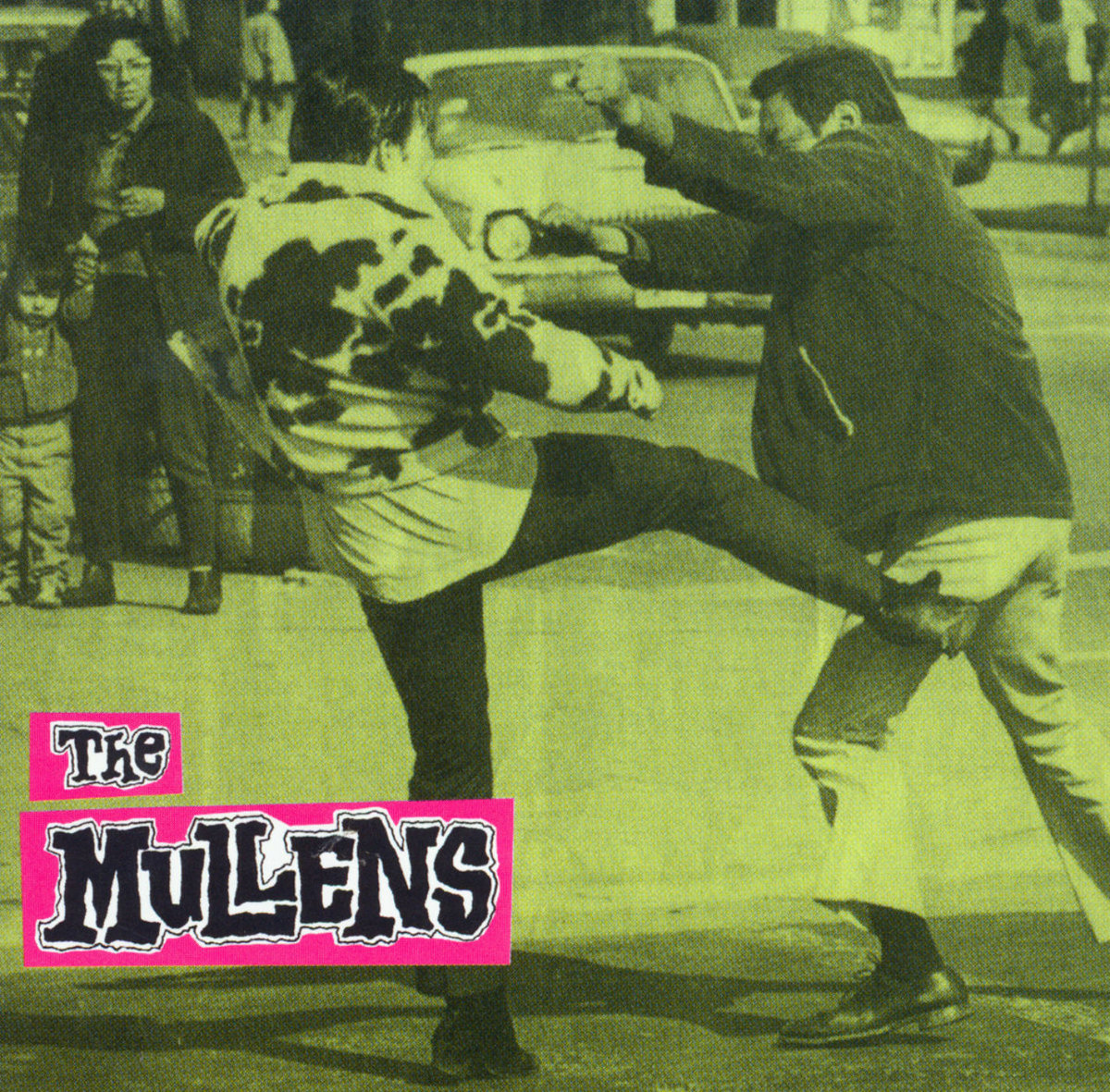
My favourite might be ‘Go Where the Action Is,’ just pure fun. How do you recall working on it?
We recorded ‘Go Where The Action Is’ pretty quickly after our second tour. I moved into a different rent house with a really big, detached garage and we all pitched in and converted it into a really nice studio with glass wall separation and the sound was great, much better than the first place where we recorded the debut album. We had a fresh batch of songs and I remember it was really fun making the album. The first song, ‘Egg It On’ was me and Matt collaborating, Matt had the riff and I had the juvenile lyrics, sort of based on girls we could all relate to who lead you on all night or over a period of days, weeks, et cetera, haha. It was a great way to kick off the album. We got a really great drum sound for that song and the whole album, really. ‘Not So Bad’ was a favorite to play live and sounded really great on the album. Dana Williams’ bass line was booming and so classic garage even though Dana wasn’t really a fan of garage. ‘Lockjaw, Ohio’ was my song, literally about getting lockjaw on the first tour while in Ohio. It wasn’t really lockjaw, but just one of those pains you get from gnashing your teeth and it hung around a couple of days. I remember trying to get drunk to get rid of the pain before the show in Akron, Ohio, but when we got on stage I just shook it off. ‘Miserable Party’ was Matt’s brilliant composition that might have been about a real party we went to. We were actually kind of anti-social and made fun of the scenesters. ‘Miserable Party’ is a highlight of the album and it was used in some sports shows on TV in an episode that aired multiple times. I think it had something to do with skateboarding. I never saw the show, but we received royalties for it. We were really humming at that time. ‘Future Days’ was a Matt composition and was a great one on record and to play live. ‘Sad Girl’ was me and Matt collaborating, another great one with a killer guitar riff from Matt. ‘Hurt You Quick’ was my song about a horrible lynching that took place in Texas around that time where three white men dragged an African American man to his death behind a truck. I remember seeing coverage on the news and the citizens of the small town where it took place were so ashamed, which inspired the line, “The town went crazy over the publicity.”
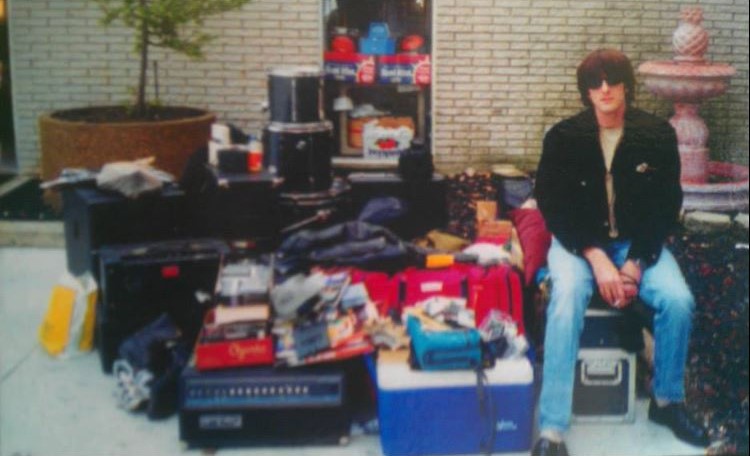
Matt came up with the photo for that album too. It was an ad in a Playboy magazine from the 1970’s for one of the big casinos at the time in Las Vegas. I love that cover too. The back of the album has photos from tours. We did another tour after the second album and mainly did Western US and Canada. We played the legendary El Mocambo in Toronto and then got to play with one of our favorite bands at the time, The Von Zippers, in Calgary. We went west from there through the Canadian Rockies, which had stunning vistas all along the way. We played in Vancouver with a band whose name I can’t remember, but the main guitarist/singer in the band was CC Voltage and we had a blast hanging out with him for a few days, then our last show in Canada for that tour was Victoria Island. We had to ride a ferry to get to it. After the show we partied in the bar and those were the nicest people I think we ever met on the road. Lee Lazarine played bass for that tour as Dana Williams either left the band or couldn’t make the tour, I can’t remember for sure.
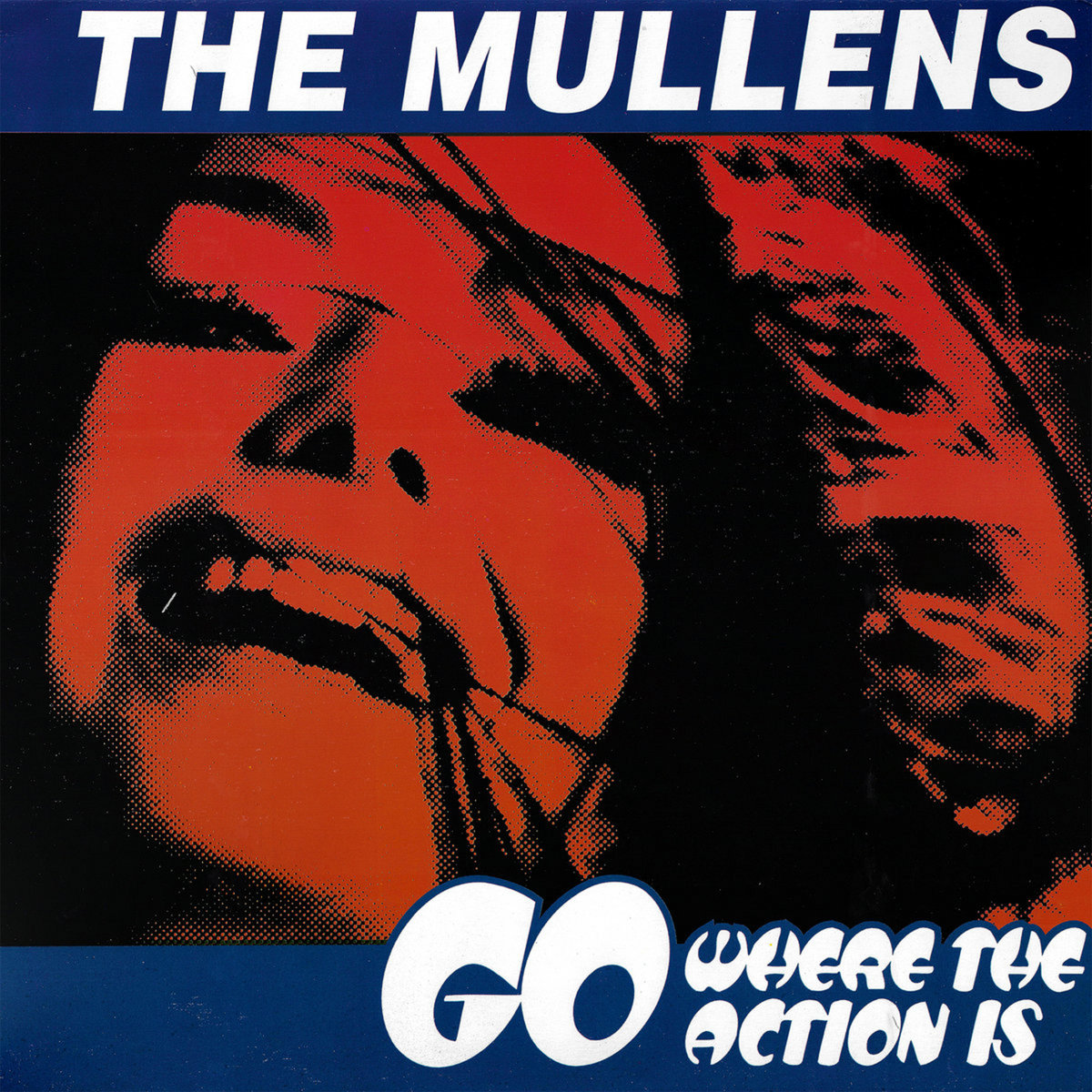
How would you compare it to ‘Tough to Tell’?
‘Tough To Tell’ is almost ‘Go Where The Action Is’ part two. We had just come off another tour, had a bunch of new songs inspired by life on the road, or people we hung out with. ‘Shady Deal’ is about being driven around Detroit after hours looking for some illegally sold after hours beer. We went to this house and our driver went in to get the beer and there was a car parked in front of us and these two African American girls got in it and you could literally see their butts, hence the clumsily worded line, “I could see one of them’s butts”. ‘Tough To Tell’ was recorded pretty soon after ‘Go Where The Action’ is in the same garage studio, so the sound to me is about the best of all the albums to that point. Matt and I had a blast recording the vocals, like on ‘Goodbye Lady,’ ‘Boy In A Band,’ ‘Yeah Yeah Gone’. Fun times. Unfortunately, the house the garage was behind and where I was living with my new wife Kristin (we had been married two months), had a terrible fire and we had to move. We lost everything in the house, but the studio wasn’t hurt at all. We moved to a different rent house and I set up my gear in that garage and we finished the album and mixed it there. I give a lot of credit to Gregg Kostelich at our label Get Hip because all our albums were mixed pretty well in my opinion, but Gregg knew the best guys for mastering, and all three of our first albums were I believe mastered by the same guy and he did a superb job on all three.
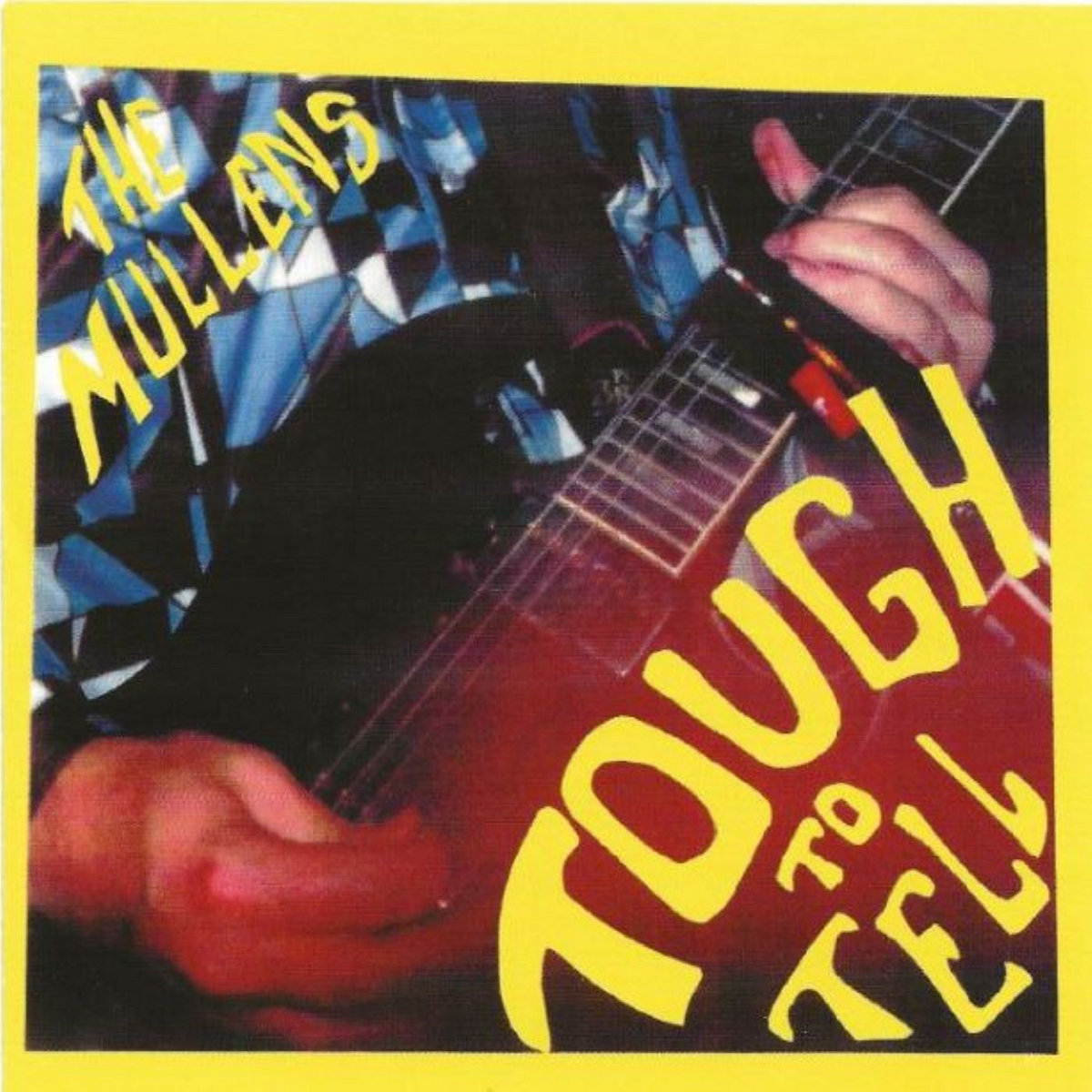
It took more than a decade since ‘It’s Hard to Imagine…’ to record your latest album. What occupied your life in-between?
Unfortunately, just to back up a little bit, Matt suddenly moved with his new wife to Seattle right after we finished ‘Tough To Tell’. He was in Seattle a few years, then moved to Houston, which is four hours away from where the rest of us lived, so that made getting together and being productive like we had been prior very difficult. We still played and even did some travelling to Las Vegas for annual garage fest there, the Blackout in Chicago, and some local gigs too, and came up with enough songs for ‘Hard To Imagine,’ which we recorded in our bass player’s house because I was never able to get another studio built like the one in the garage of the house that burned down. Our drummer Rod voluntarily and temporarily left the band, so a good friend of ours Hank Tosh filled in for ‘Hard To Imagine’ and Lee again played some of the best bass on a Mullens album (check out ‘Get Together’). As I’m sure you can understand, by that time, we were growing up, getting married and having kids and were pretty busy with all that kind of stuff for a while. Now mine are old enough so I can go do gigs whenever and it doesn’t leave my wife with too much to handle on her own. Bill Whetsel started playing bass right after the release of ‘Hard To Imagine’ and Lee moved back to second guitar. Our personal lives were more stable by about 2019, but Matt couldn’t make the trip up to Dallas from Houston anymore. I was writing new songs and Lee became the main guitar player. But then Lee moved to Austin, he would still come up to Dallas to play, but we needed a second guitar player, so we recruited an old friend of mine Mike McHenry and the four of us me, Mike, Bill & Rod started rehearsing more as a four piece with Lee making it up for shows and maybe a quick rehearsal. I had started playing guitar at gigs with Lee and then played on some gigs with Mike and that was becoming the band, me and Mike on guitar and vocals. By 2020 we had enough songs to make a new album and we started recording our first batch of songs for ‘Get What You Deserve’ at Cloudland studio in Ft. Worth. I think about six of the songs are me and Lee on guitars and the rest are me and Mike McHenry on guitars.
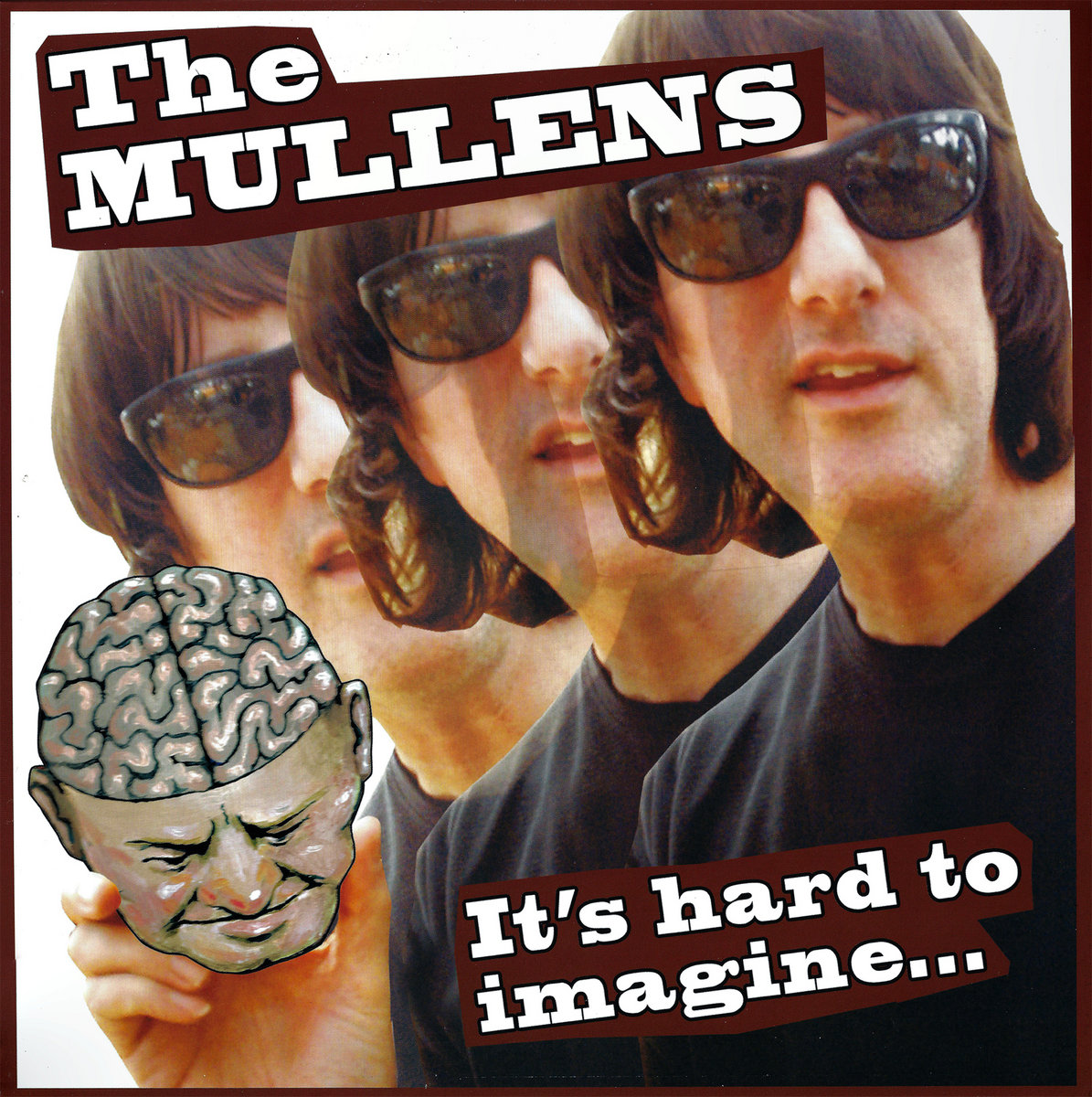
What kind of gear, amps and equipment are you using these days?
I write my songs usually on a Fender Telecaster or a Gibson Les Paul Jr. and either a Fender Champ amp, when I play at home it’s 100% of the time through this little black Gorilla that belonged to a friend of mine’s father who passed away and I kind of cherish that little amp. When we play live, I play either my Fender or Gibson through a 1964 Vox JMI head with a Vox 2 x 12 cabinet. I bought the Vox head in the 90’s from a store in California, I’m still learning how to make it sound good. Mike alternates guitars, playing either a Gibson or a Gretsch, occasionally a Vintage guitar. He got a new guitar last week, I can’t remember the brand, but it has double cutaways and a leopard print pick guard. Mike’s amp of choice currently is a vintage Magnatone. I couldn’t tell you what kind of bass rig Bill uses. Rod has a really cool Fibes drum set and a nice rocking red Tama set with The Mullens logo on it. We have a rehearsal room that we rent monthly and it’s kind of my second home for working on new songs. I have been a Pro Tools user for a long time and I have two Apollo 16 interfaces, one at the rehearsal room and one in my little jam room at home. I bought a 16 track Tascam one inch reel to reel that we used to record ‘Hard To Imagine,’ but I think my Tascam 8 track gets a better sound and I would like to try using it again.
What are some clubs you played early on?
Early on we played a lot of punk clubs that were really just spaces that didn’t last very long. The Unincorporated in the Oak Cliff section of Dallas was where some of our earliest shows were played to very enthusiastic audiences of kids who knew our songs just from cassette tapes being copied and passed around. The Orbit Room was a short lived club in Dallas in our early days and we probably built up our biggest following there. Currently Three Links in Deep Ellum, Dallas is one of the more desirable places to play.
What are some bands you shared stages with?
We have opened for a few well known touring bands over the years, but the most memorable for me is when we played with Question Mark & The Mysterians, the original line-up including the original drummer who had gone to Vietnam shortly after they recorded the ’96 Tears’ album. Someone had given me a phone number for Question Mark (aka Rudy Martinez) and I called him one day. He told me I could call him Quey (Cue-ee). He was super nice and I talked to him for a while and asked him if they could come play in Dallas. Luckily, they were about to go out on the road again and so we got to play with them in Dallas at Club Clearview. This was a couple years after they played Cave Stomp in NYC where they recorded the live album ‘Do You Feel It Baby? The Captivating Live Sounds of Question Mark and the Mysterians’. Some of the band members were originally from Texas and their families had moved to Michigan in the 1940’s and 1950’s to work in the auto industry. Frank the organ player who was responsible for the signature organ on ’96 Tears’. Frank’s mother and some other family members who still lived in Texas were there cheering him on, it was so cool to be a part of the family reunion. After the show, we hung around talking and I talked to Question Mark. He talked about what it was like when they had a number one hit in 1966 and other topics. He has sort of an eccentric personality and he told me and Matt that he speaks to people from the future. Matt asked him if they were assholes, and Question Mark said, “No man, they’re from the future,” with his TexMex/Michigan accent. He and Frank were very charming and down to earth and seemed like grown up kids. We played with The Oblivians a couple of times in Memphis during the height of their popularity. One gig, they were to be leaving early in the morning to go to Japan and there was clearly some kind of friction going among them. I remember thinking that was going to be a really long plane ride for them. We played with The Dirt Bombs with Mick Collins in Chicago. Obviously Mick had been kind of a role model in the early days. But the shows we have played over the years with The Sons of Hercules and Sugar Shack from Texas were the best. Those two bands are Hall of Fame worthy, and you can’t help being in awe of their presence and force when they’re on stage.
What would be the craziest story that happened to the band?
One time in New York, we were staying at my brother’s apartment in Brooklyn. We had all gone to sleep in various locations in the apartment, then about 4 or 5 in the morning, while it was still dark outside, we’re all woken by someone banging on the window from outside and yelling, “Let me in!” It was our bass player Dana Williams and he was outside in his underwear. So we open the door and he comes in without any explanation and goes back to sleep. When we all get up later, Dana has no recollection of it at all. We all just assume that he was sleep walking, like he got up in the middle of the night because he had to pee, but was still in deep sleep, opens the door to go outside, thinking he’s going to the bathroom, goes out and takes a pee on the stoop in front of the apartment building then can’t get back in. I’m over six foot tall but Dana is a big tall Texan with a big physique, and I can just imagine the most dangerous thug on the street didn’t dare mess with this big guy in his underwear peeing off the stoop. I’m sure we had a lot of beer to drink that night so Dana had a lot to unload and was loud and took a while. I’m sure the block was terrified.
What’s next for you guys?
Just two weeks ago we went back to the studio and recorded ten new songs for our next album. We are blown away by the way the new tracks are sounding. Rod’s drums and Bill’s bass are more solid than ever. Bill has gotten so incredibly good and can come up with a bass line that doesn’t just follow the chords but works in a counter way that makes the song fuller. We’re going to play three shows in Los Angeles in October, and we’re doing a 10 day tour of Spain in January, 2024.
What can you tell us about High Beams and The Sunday Drunks?
The High Beams were Matt’s side band while he was living in Seattle. They released an album and did a tour and came through Dallas. I think we might have played with them and Matt played in both bands that night at The Cavern, a short lived venue on Greenville Avenue in Dallas. The Sunday Drunks were Lee’s band in the early 2000’s, and made some solid albums.
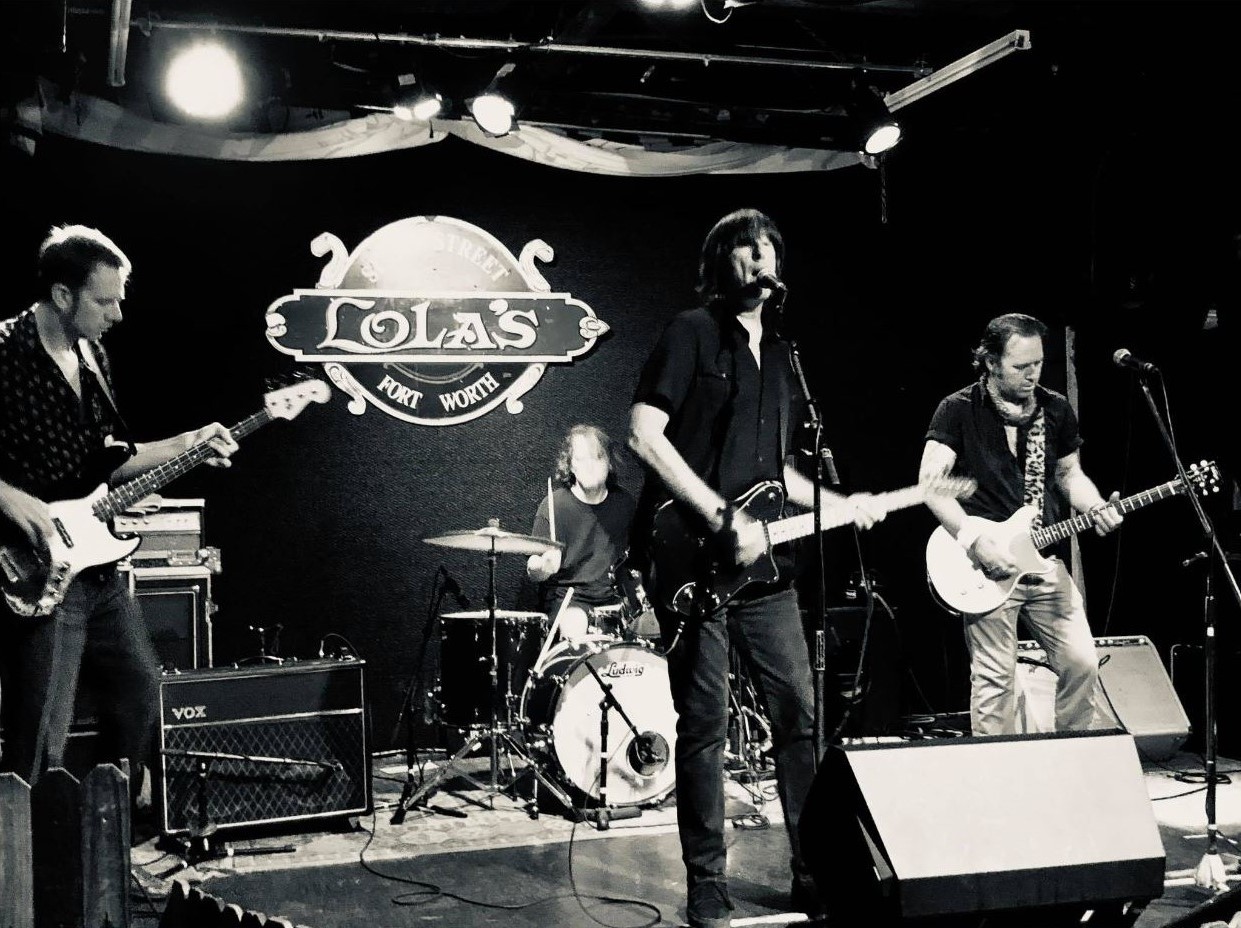
Are any of you involved in any other bands or do you have any active side-projects going on at this point?
Our drummer Rod started a new band called The Ex-Members a long time ago while The Mullens weren’t as active. He has another side band called Bad Machine and they both still play. Rod loves to play the drums and The Mullens are so lucky he does, after all these years. He’s the soul and pulse of The Mullens.
Let’s end this interview with some of your favourite albums. Have you found something new lately you would like to recommend to our readers?
Pussy Gillette from Austin is probably my favorite newer band from the Texas scene, they’re just straight up Texas style punk rock with an attitude. We played with them in Denton on the Fourth of July US holiday this summer. I’ve been really getting into some of the newer garage bands from the Los Angeles area on the Outro Records label, like The Killing Floors and the Wyld Gooms. We’re playing with the Killing Floors on Friday October 13 in LA for an Outro Records release weekend showcase.
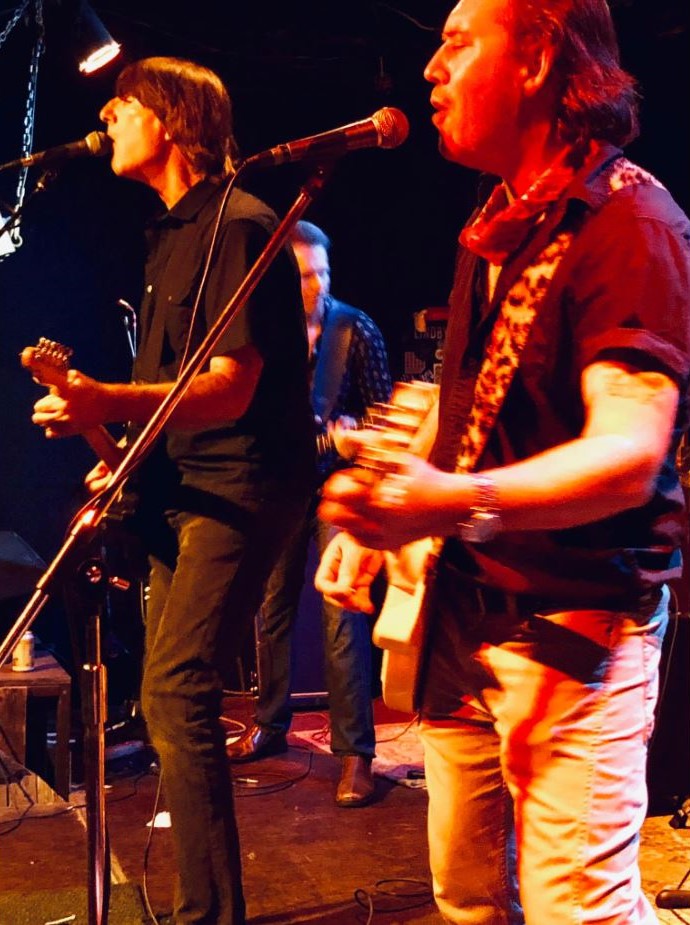
Thank you. Last word is yours.
Thank you very much for inviting me to do this interview. It surprised me how much detail I could remember.
Klemen Breznikar
The Mullens Facebook / Instagram / Twitter / Bandcamp / YouTube
Get Hip Recordings Official Website / Facebook / Instagram / Twitter / Bandcamp / YouTube

